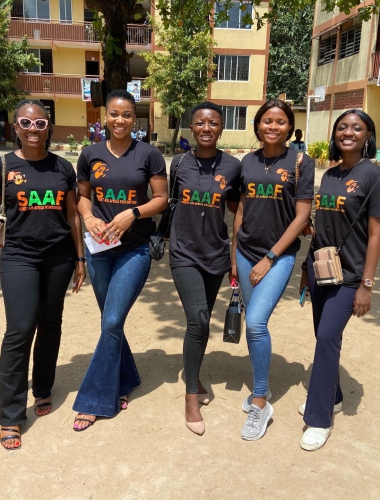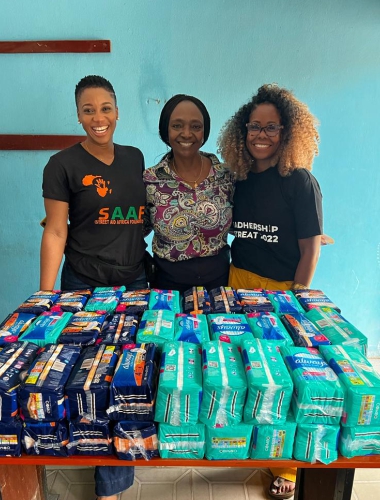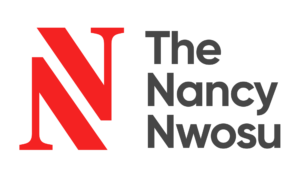Hello Big Sister
A Girl Child Focused Initiative
IDENTIFIED PROBLEM
Despite the existence of various national and international legal frameworks, such as the Strategy for the Acceleration of Girls' Education Programme (2003), the Child Rights Act (2003), and the United Nations Convention on the Rights of the Child (UNCRC), millions of Nigerian girls still encounter significant barriers preventing them from accessing quality education.
According to the UNESCO Institute of Statistics, the number of out-of-school girls in Nigeria has reached an alarming 5.5 million, representing a critical educational crisis.

Research highlights several factors contributing to this phenomenon, including poverty, teenage pregnancy, child marriage, sexual violence, and female genital mutilation.
OUR STRATEGIC SOLUTION
Empowering Girls Through Big Sisters of SAAF
The Big Sisters of SAAF initiative is a transformative program aimed at empowering underserved girls in public schools across communities. Drawing on the expertise and experience of successful women and ladies in various fields, this initiative seeks to bridge the gap between generations by providing mentorship, guidance, and valuable knowledge to younger girls.
Through interactive sessions held in schools, Big Sisters of SAAF cover a wide range of topics essential for the holistic development of girls. These sessions may include discussions on career pathways, leadership skills, financial literacy, personal development, and health education, including comprehensive menstrual health education.
One of the cornerstone elements of the initiative is the provision of menstrual materials to girls in need. Recognizing the significant barriers that menstruation poses to girls’ education, Big Sisters of SAAF ensures that girls have access to essential menstrual hygiene products, such as sanitary pads, to manage their periods with dignity and confidence. This not only addresses immediate needs but also promotes menstrual health awareness and hygiene practices among girls.
By bringing together accomplished women and girls from the community, Big Sisters of SAAF fosters a supportive and nurturing environment where girls can learn, grow, and thrive. Through mentorship and access to menstrual materials, girls are empowered to overcome obstacles, pursue their dreams, and become leaders in their own right.
In essence, Big Sisters of SAAF serves as a beacon of hope and inspiration for underserved girls, providing them with the tools, knowledge, and support they need to unlock their full potential and shape a brighter future for themselves and their communities.
KEY OBJECTIVES
- Mentorship and Guidance: Pair experienced women and ladies with younger girls in underserved public schools to provide mentorship, guidance, and support on various topics such as career exploration, leadership development, personal growth, and menstrual health education.
- Empowerment Through Education: Facilitate interactive sessions led by Big Sisters on essential topics tailored to the needs and interests of the girls, including but not limited to academic success strategies, self-confidence building, goal-setting, and health education, with a focus on menstrual hygiene and reproductive health.
- Access to Menstrual Hygiene Products: Ensure that girls in underserved communities have access to menstrual hygiene products by providing them with sanitary pads and other necessary materials, thereby reducing barriers to education and promoting menstrual health awareness and hygiene practices.



Our Partners






